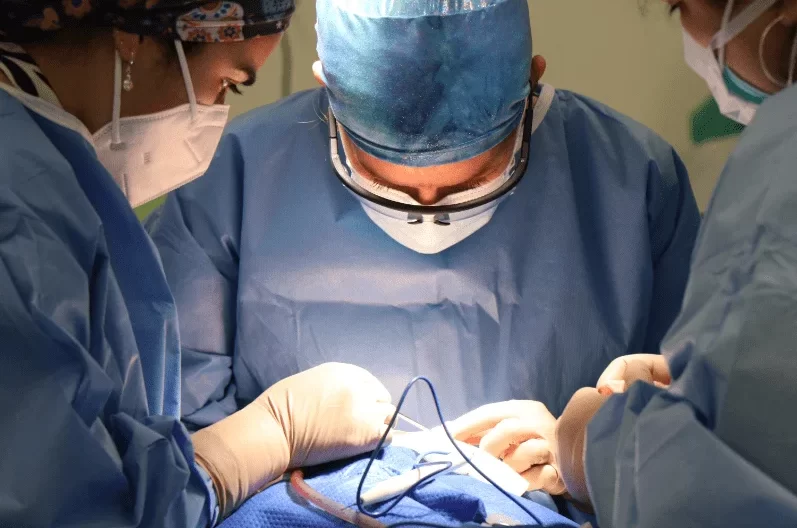The family had done her spine MRI almost 4 years back and were suggested a surgery, but they were not completely aware of the issue she had because she was walking but with little difficulty. They delayed the surgery due to this lack of understanding. This lead her being bed bound since 3-4 months. Thankfully she had control over her toilet activities. The family now realised that it was time they thought seriously about surgery.
The issue with Mrs. K was that the BIG nerve (spinal cord in medical terms) carrying signals from brain to her hands, legs and rest of the body was seriously compressed in her neck.
This was due to advanced wear and tear (advanced cervical spondylosis) of her neck bones and discs between them at multiple levels. This sustained pressure is ill tolerated by the nerve in the neck. It thus fails to transmit signals to the hands and legs leading to paralysis of the areas supplied by it below the site of compression. In many cases it also causes short-circuiting of the impulses thus leading to stiffness of the body and unbalanced walking. There is a strong genetic basis for this happening to many people. A genetic risk clubbed with lack of monitoring her health had brought her to this stage. The fear of spine surgery runs deep in our society and I suspect that this was also a major factor in delayed surgery by many people. There was no alternative than surgery for Mrs.K. The family noticed that she had significantly worsened and were now ready for surgery.
The problem we, as surgeons, face is ill-understood by patients and the general population. Here is a lady who has now worsening paralysis of her hands and legs, unable to balance and walk and surgery needs to be performed on her. The expectations of a miracle when things are significantly worse put us on the back foot. It is here that spine surgery gets its disrepute- The disparity between suffering patient’s expectations and those of the operating doctor.
Spine surgery on the neck in these worsened conditions helps to stabilize problem. Things necessarily do not worsen from what the patient already has. There is always a chance of recovery from paralysis in these particular situations but it is often patchy. We as surgeons are very alert and aggressive in treating such patients before things worsen. That is when we can prevent paralysis and improve your quality of life. Spine surgery causing paralysis is very rare in modern day spine surgery care. This is due to the availability of advanced technology (imaging during surgery, microscope, nerve monitoring) which makes surgery safer.
Mrs.K underwent the neck surgery in August 2014. It was a 2 hour procedure to make space for the trapped nerve. She woke up after the surgery with same power that she had prior to surgery. In the coming 2-3 months she was put on aggressive rehabilitation of her hand and leg and body functions. The effect was that she gradually started walking on her own, though with some imbalance. She walked in to my clinic 3 months after the surgery with a very positive mindset and wanting to do more things. That always is a great situation to be in for the patient and doctor as well.
This is not new to us as doctors. It deserves a mention for a couple of things, which concerns patients.
1) Taking interest in your health situation beyond just meeting doctor. Sharing and discussing information about your health and UNDERSTANDING the problem, helps.
2) Spine surgery improves quality of life significantly and does not lead to paralysis in a majority of cases. Not doing surgery carries the risk of a life long paralysis in certain scenarios…like the case we saw above.


